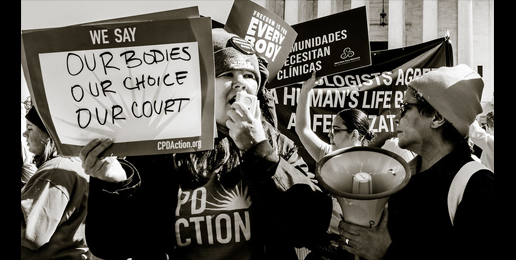
In 1986, Missouri became the first state to pass an abortion law requiring abortion doctors to have admitting privileges at a hospital “in the community” to ensure the health and safety of women undergoing abortion.
Later, I was horrified to find out that a doctor was doing abortions just a few miles from my home in St. Louis. It turned out that his admitting privileges were in another country! The abortion clinic was closed.
As I wrote last August in “Pro-abortion Desperation in Missouri” :
“the last abortion clinic in Missouri lost its license because of numerous health and safety violations. The Planned Parenthood abortion clinic continues to operate only because of several temporary injunctions by a judge.”
While the Missouri case is still ongoing, now the U.S. Supreme Court is considering the June Medical Services v. Russo case concerning whether Louisiana’s law requiring abortion providers to have admitting privileges at a local hospital conflicts with the Court’s 2016 Whole Woman’s Health v. Hellerstedt decision along with a second issue about “whether abortion providers can legally represent the interests of women seeking an abortion when those providers sue to overthrow laws protecting those women’s health and safety.”
IS ABORTION MORE IMPORTANT THAN SAFETY?
In a powerful commentary titled “The OB-GYNs Who Play Politics With Women’s Lives-Abortion is more important than safety to the American College of Obstetricians and Gynecologists” in the March 3, 2020 Wall Street Journal, Dr. Christina Francis calls out the American College of Obstetricians and Gynecologists (ACOG) for “offering a medically unsound recommendation in the furtherance of its extreme position on abortion”.
Dr. Francis, a board-certified obstetrician-gynecologist and the chairman of the board of the American Association of Prolife OB/GYNS, refutes ACOG’s friend of the court brief arguing that the admitting privileges requirement for abortionists is not “‘medically justified’ and therefore constitutes an ‘undue burden’ on a woman’s right to abortion’” by stating:
“Yet every second counts in an obstetric emergency. A pregnant woman experiencing severe uterine hemorrhage can bleed to death in as little as 10 minutes. That’s why its essential that anyone performing an abortion have the ability to admit a patient to a nearby hospital—preferably one closer than 30 miles away.”
ACOG routinely puts politics ahead of medicine by adopting the most extreme positions on abortion. It has lobbied and briefed against parental notification of minors and informed-consent laws, and in favor of taxpayer-funded abortion. It has advocated for laws restricting speech around clinics and compelling pro-life pregnancy centers to tell women where they can go to obtain state-subsidized abortions. ACOG’s work has gotten so political that in 2008 it added a lobbying arm. I was refused when I asked if I could direct our dues only to the organization’s nonlobbying arm.
Eighty-six percent of OB-GYNs don’t perform abortions, but ACOG’s position is that you either support the most extreme abortion lobbying or you’re off the island. Most of ACOG’s abortion advocacy is undertaken free of consultation with its almost 60,000 members. Physicians who’ve left the organization, like me, support its general work but don’t want to support abortion lobbying, especially when it comes to watering down or eliminating safety standards. (Emphasis added)
Dr. Ford also notes that:
“In any practice area other than abortion, a doctor performing an operation would have hospital-admitting privileges. In the case of complications that doctor would, at a minimum, call ahead to fast-track the patient to the appropriate emergency care. Abortion-clinic patients, on the other hand, are frequently kicked to the curb and told to make their own way to the emergency room.”
CONCLUSION
Those of us in Missouri have seen the problems and attempted coverups at the hopefully last Planned Parenthood clinic in St. Louis. Just last year, it was reported that:
“Operation Rescue, with the help of Missouri pro-life activists, has documented 74 medical emergencies that have occurred at RHS Planned Parenthood in the past ten years, including three emergencies that required ambulance transport for women to a local hospital within a 22-day period ending on May 15, 2019.” (Emphasis added)
The U.S. Supreme Court decision is not expected until June and is likely to have an enormous impact on the state of abortion in our country, especially since pro-abortion groups have now abandoned the old rhetoric about keeping abortion “safe, legal and rare’” in favor of tax-payer funded abortion on demand up to birth and even leaving babies to die after failed abortions.
In the meantime, considering choosing and supporting pro-life health care professionals and their professional organizations such as the American Association of Pro-life Obstetricians and Gynecologists (AAPLOG) and the National Association of Pro-life Nurses (NAPN).
This article was originally published at NancyValko.com.






















